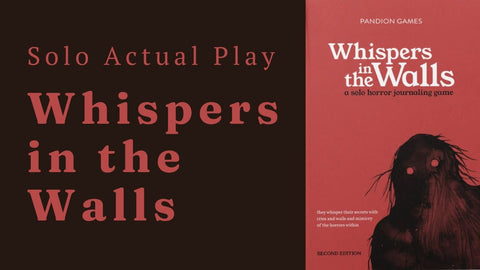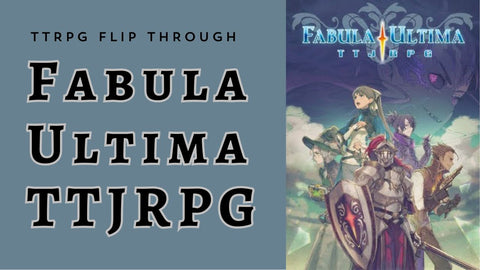Since launching Tabletop Bookshelf in December of 2023, I've backed over 20 crowdfunded projects. It's a core part of our mission to expand and enrich the TTRPG space. But I can't back every project! So how do I decide?
In this post, I'll explain the factors that matter. I hope this helps TTRPG creators and publishers as they plan out their retailer tier rewards for crowdfunded Kickstarter, BackerKit, or Crowdfundr projects.
A Compelling Hook
When I consider a project, the first check is internal. Am I interested in this? This happens more in the gut than in the head. I need to be grabbed by something in the presentation. The more novel and compelling, the better. I want to be fascinated!
As a creator or publisher, you can accomplish this in a few ways. This may disappoint a lot of text-first creators, but the visual is going to be more important in this case. A picture that captures the imagination or can communicate clearly what's unique about the experience will go further and faster than a paragraph explaining the same thing.
That being said, the "elevator pitch" also matters! Be able to explain in a sentence or two why I would want your game or book, what it offers, why it's different. This matters for online-only retailers like me who need concise messaging for social media, but also for brick-and-mortar retailers who need to be able to explain it to a curious customer.
Creator and Team Reputation
This is typically the second check if I don't already know the creator or team behind the project. What is their track record? Is this their first project?
If this is your first project, you have to find another avenue to build trust with a potential retailer. This could be a description of your prior professional experience or quotes from fellow creators in the community.
If this is not your first project, I am going to look at the comments on past projects. Were they delivered on time? Were people happy with the results? This is why it's important to deliver on your promises. The trust you build by meeting expectations has value beyond the dollars you bring in.
Time and Money
These go together because backing a crowdfunded project from a retailer perspective is like making a medium-term investment. I am putting up money upfront, usually hundreds of dollars, with the hope that months from now, I'll be able to make that money back and cover my costs of promotions and operations, not to mention shipping.
Every investment is a risk, but that risk is going to be measured against two main factors: how much money am I putting in? how long will I have to wait to make that money back (and hopefully cover expenses)?
I recently wanted to back a project, but it was asking almost $300 for delivery in 14 months. There are a lot of better things I can do with my money in that time.
Popularity
Popularity is less important to me but still matters in that it communicates the size of the existing audience. And if a project has very low backer numbers, that is going to give me pause, or at the very least, it's telling me I am going to have to put more money into promoting this because there's not a built-in audience.
Oddly enough, numbers that are too far in the other direction with many thousands of backers are also going to give me pause. Why? Because what this tells me is this publisher or creator already has a strong promotional machine. They don't need my help to build or find an audience; they already have one!
Disqualifiers
Finally, there are a few things that will immediately disqualify you from consideration.
-
AI art. If you think AI art makes it "cheaper" to create TTRPGs then you have a distorted view of the relationship of art and the artist to TTRPGs. Artwork, human artwork, is an integral part of TTRPGs from its inception. Artists are not simply laborers delivering other people's visions. They are creating the visions of the worlds we explore. To cast this aside or worse yet, rip off these creators' work to spew out machine-made derivatives to fill your own pocket is deplorable.
-
Bigotry. This should be a no-brainer but needs to be said in these times, all times. Any story that peddles in power fantasies that dehumanize or demean another group is not a story that should be told. These are the tools of oppressors, violence by another means. Even satire on this front needs to be approached with extreme caution because the oppressor will find comfort in taking the satire seriously.
Conclusion
In this post, I shared some of the factors I consider when making a decision on backing a crowdfunded project at the retailer tier. I hope that creators and publishers can find this helpful as they build out their own projects.
My final thought is that I see too many projects that don't bother to include a retail tier. Even if you're a small project, you should consider a retailer option. Who knows, you might find a partner excited to share your work with new audiences for months to come!




